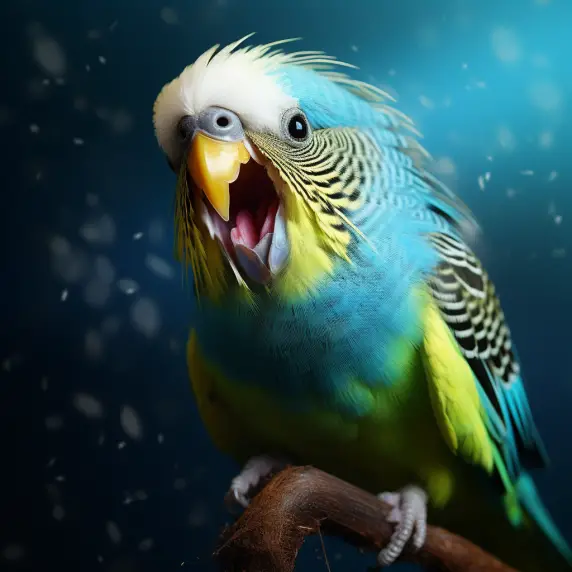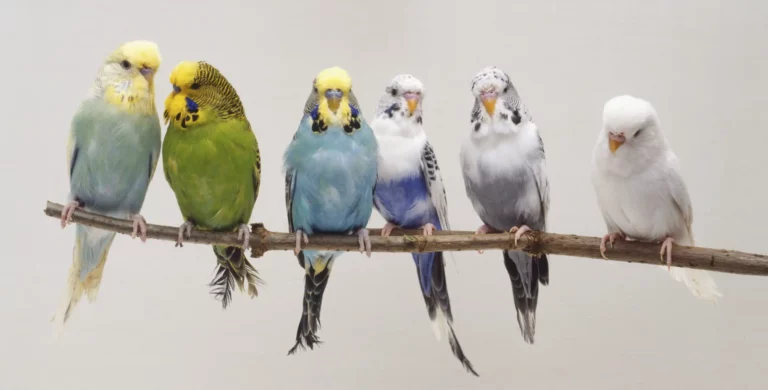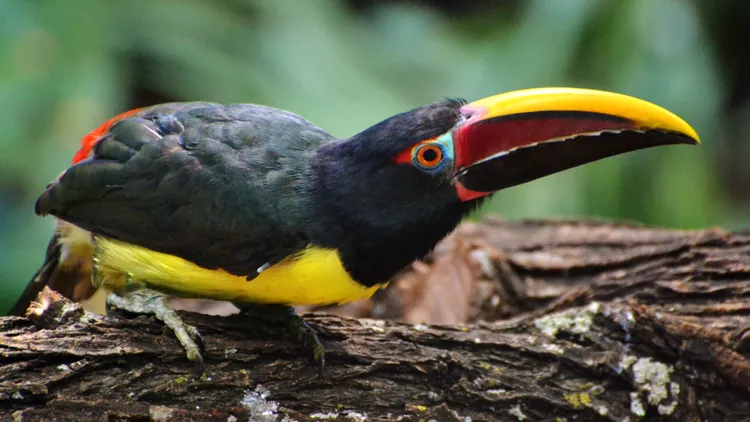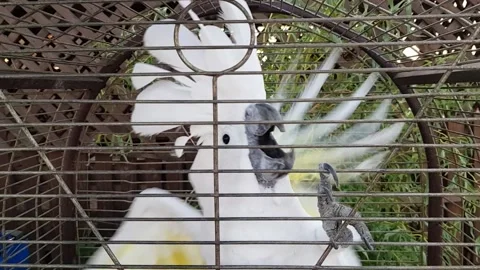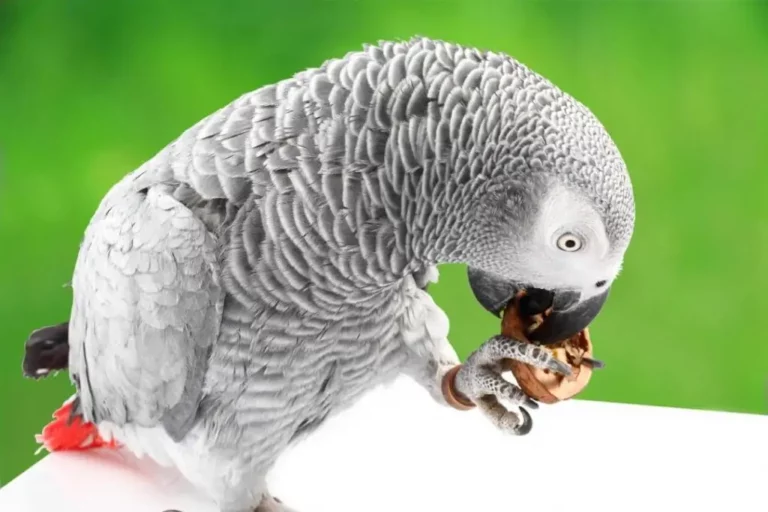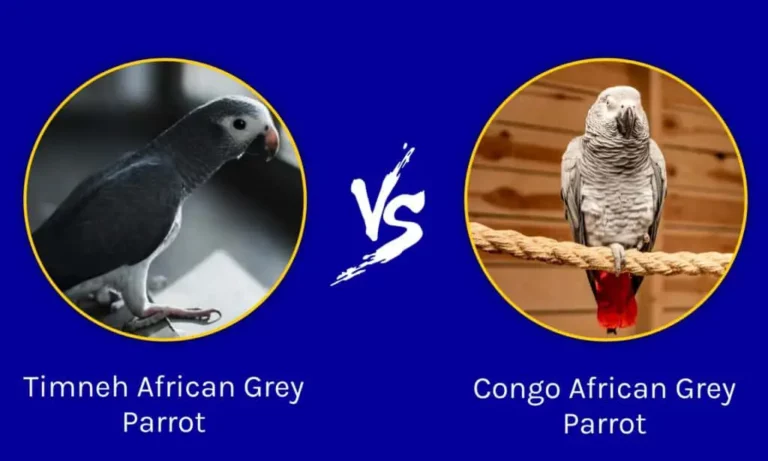Why Are Quaker Parrots Illegal in Certain Places?
Welcome to a fascinating journey exploring why Quaker parrots are illegal in certain parts of the world. These vibrant, intelligent birds, known for their exceptional mimicking ability, have become a topic of controversy due to their distinct behavioral traits and adaptability, leading to strict regulations in several regions.
This blog post explores the reason behind the prohibition of Quaker parrots in some places, shedding light on the ecological, legal, and ethical factors at play. The discussion extends to specific states’ restrictions, the impact of these laws, and the ongoing controversy surrounding Quaker Parrot legislation.
We will also address several frequently asked questions, offering comprehensive insights into this multifaceted issue.
Key Takeaways
- Quaker parrots are native to South America but have managed to establish colonies in different parts of the world.
- These birds are deemed illegal in some states due to their aggressive nesting behavior and potential to disrupt local ecosystems.
- Legality varies from state to state, with some allowing ownership under certain conditions.
- The debate on Quaker parrot legality continues, balancing the rights of pet ownership against ecological preservation.
Why Are Quaker Parrots Considered Pests?
The paradox surrounding Quaker parrots is born out of their survivalist nature. These parrots, native to the cool-temperate regions of South America, exhibit an incredible ability to adapt to various climates and environments, a trait not common to many exotic birds.
From America to Europe and even Japan, these intelligent creatures have managed to establish colonies far from their native habitats.
Aggressive Nesting Behavior
One of the distinguishing traits of Quaker parrots is their community nesting behavior. Unlike many birds that build individual nests, Quaker parrots construct large communal nests with separate chambers for each pair. These nests can grow exceedingly large, often covering entire trees or utility poles.
This aggressive nesting behavior can lead to issues with power lines and transformers, causing power outages and fires. Moreover, the sheer weight of these nests can lead to the toppling of trees, causing potential property damage or harm to people.
Impact on Native Species and Ecosystems
The adaptable nature of Quaker parrots poses a threat to native species. Being voracious eaters, they compete with native birds for food sources. The communal nests they build can also displace other species from their natural habitats.
Quaker parrots’ rapid proliferation and their impact on native ecosystems are why they are deemed an invasive species in certain regions. This status often results in stringent laws and regulations aimed at controlling their population, leading us to the crux of why Quaker parrots are illegal in some areas.
Quaker Parrots Legality in Specific States
The legal status of Quaker parrots varies considerably from state to state in the United States. Some regions allow unrestricted ownership, while others impose specific regulations or outright bans. Let’s delve into the legality of these birds in several states.
Are Quaker Parrots Illegal in Texas?
In Texas, it is legal to own Quaker parrots. However, it’s worth noting that the law requires owners to clip the birds’ wings to prevent them from establishing wild populations, ensuring they can’t add to the state’s invasive species concerns.
Are Quaker Parrots Illegal in Florida?
Florida, known for its exotic pet culture, permits the ownership of Quaker parrots. But similar to Texas, these birds are classified as a potential threat to native ecosystems, thus the need for owners to adhere to certain restrictions to prevent them from going wild.
Why Are Quaker Parrots Illegal in California?
California has a strict stance against Quaker parrots. The state’s Department of Fish and Wildlife classifies them as a significant threat to agricultural crops and native species. Hence, ownership, transportation, or breeding of these birds is illegal in the state.
Are Quaker Parrots Illegal in New York?
In New York, Quaker parrots are legal, despite having established numerous wild colonies in places like Brooklyn and Queens. No specific ownership restrictions exist; however, selling Quaker parrots within the state is prohibited.
Why Are Quaker Parrots Illegal in Pennsylvania?
Pennsylvania deems Quaker parrots illegal due to the potential agricultural and infrastructural damage their large communal nests can cause. The state’s Game Commission lists them as a prohibited bird species.
Are Quaker Parrots Illegal in Kansas?
In Kansas, Quaker parrots are considered illegal. The state’s laws against Quaker parrots are primarily due to concerns about their potential as an invasive species that could harm local ecosystems.
These regional differences illustrate how each state balances the potential threat of Quaker parrots against the freedom of pet ownership. While some permit ownership under specific restrictions, others have implemented complete bans, making it essential for potential owners to understand and respect these laws.
Refer to beChewy for a comprehensive list of U.S. states where it is legal to own a Quaker Parrot.
Impact of Illegal Quaker Parrot Ownership
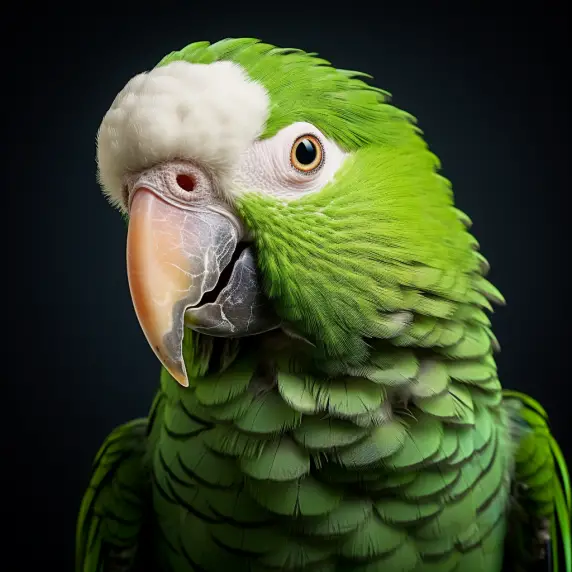
Navigating the legal landscape surrounding Quaker parrots can be tricky, particularly in regions where their ownership is outrightly prohibited or restricted. Let’s delve into the potential impacts of owning these birds illegally.
Legal Repercussions
Ignoring state regulations and owning a Quaker parrot illegally can lead to legal consequences, including hefty fines and possible confiscation of the bird. In some states, violators may face criminal charges for unlawful possession or transportation of Quaker parrots.
Ethical Implications
Beyond legal implications, owning Quaker parrots illegally raises ethical concerns. Released or escaped parrots can contribute to invasive populations, causing harm to local ecosystems, native species, and infrastructure.
Responsible pet ownership includes understanding and respecting local laws designed to protect biodiversity and ecosystem balance.
Potential Health Risks
Illegal pet trade often bypasses health and safety regulations, increasing the risk of disease transmission. Birds smuggled for illegal trade may carry diseases, posing potential health risks to both humans and other pets.
Loss of the Bird
Possibly the most heart-wrenching consequence of illegal ownership is the potential loss of the bird. If discovered, the state authorities may confiscate the bird. In some cases, due to the risk of disease or lack of appropriate facilities, confiscated birds may have to be euthanized.
It’s important for potential owners to understand these implications before deciding to own a Quaker parrot in a region where they’re deemed illegal. By respecting the laws and considering the consequences, we not only ensure our safety but also protect these vibrant creatures and the ecosystems they inhabit.
Differing Views on Quaker Parrot Legislation
The legislation surrounding Quaker Parrots is controversial, stirring up strong emotions and debates among various stakeholders. Let’s explore the divergent views on this issue.
Conservationists and Ecologists
Conservationists and ecologists generally support legislation against Quaker parrots as they see these birds as potential threats to local ecosystems and native species.
They argue that these parrots if allowed to proliferate, could out-compete native birds for food and nesting sites and may cause significant damage to infrastructure and agriculture.
Pet Owners and Bird Enthusiasts
Many pet owners and bird enthusiasts argue against the ban, pointing out that responsible pet ownership, which includes preventing the birds from escaping and establishing wild colonies, should be enough to mitigate potential ecological risks.
They advocate for more nuanced legislation that doesn’t infringe on the rights of responsible pet owners.
Animal Rights Advocates
Animal rights advocates focus on the welfare of the birds, raising concerns about the potential for abuse and neglect in the illegal pet trade. They argue that outright bans may drive the trade underground, leading to poorer conditions for the birds and increasing the risk of disease spread.
Lawmakers and Policy Implementers
For lawmakers and policy implementers, the challenge lies in balancing the potential ecological risks with the rights of pet owners and the welfare of the birds. This group must consider the available scientific evidence, public opinion, and practicality of enforcing laws when crafting and implementing legislation.
Understanding these varied perspectives is vital in contributing to the ongoing conversation about Quaker Parrot legislation. The goal should always be a balance that respects ecological integrity, animal welfare, and responsible pet ownership.
Responsible Pet Ownership in the Context of Quaker Parrots
Ownership of Quaker parrots comes with a unique set of responsibilities, given their potential impact on local ecosystems and the complex legislation surrounding their ownership. Here are some important aspects of responsible Quaker parrot ownership.
Compliance with Local Laws
The first step in responsible ownership is compliance with local laws and regulations. Prospective Quaker parrot owners must be aware of their local legislation and respect it. If you reside in an area where these birds are illegal, it’s advisable to consider other pet birds that are legal and suitable for your lifestyle.
Preventing Escape
Given the potential for Quaker parrots to establish wild colonies and become invasive, it’s critical to prevent them from escaping. This means ensuring your parrot’s cage is secure and that the bird is safely contained when out of the cage. Microchipping can also be an effective measure to identify and recover lost birds.
Proper Care and Stimulation
Quaker parrots are intelligent, social animals that require mental stimulation and social interaction. Responsible ownership includes providing a stimulating environment, with plenty of toys and activities, and regular social interaction with the bird.
Healthcare
Regular veterinary care, including check-ups and vaccinations, is vital to keep your parrot healthy and prevent the spread of diseases. It’s also essential to monitor your bird’s health closely and seek veterinary attention if any signs of illness appear.
Ethical Sourcing
If Quaker parrots are legal in your area, ensure you source them ethically. Avoid supporting the illegal pet trade by choosing reputable breeders or adopting from legitimate bird rescue organizations.
Being a responsible Quaker parrot owner involves much more than meeting the bird’s basic needs. It includes taking active steps to minimize potential ecological impacts and adhering to all relevant laws and regulations.
Frequently Asked Questions
Why are Quaker parrots illegal to own?
Quaker parrots, also known as Monk Parakeets, are illegal to own in some regions due to concerns over their potential to become invasive. These intelligent and adaptable birds can survive in a variety of climates, establish wild colonies, and compete with native species for resources.
Additionally, their nesting habits can sometimes cause damage to power lines and other infrastructure.
Which states are Quaker parrots illegal?
As of the time of writing, Quaker parrots are illegal to own in some U.S. states including California, Georgia, Kansas, Kentucky, Hawaii, New Jersey, Pennsylvania, and Wyoming. It’s important to check your local laws as this information may change.
Are Quakers bad pets?
Quaker parrots can make excellent pets for the right owners. They are known for their intelligence, sociability, and playful nature. However, they require a lot of care, mental stimulation, and social interaction.
Potential owners should be prepared for the responsibilities and commitment that come with Quaker Parrot ownership. In areas where they are illegal, owning them is not advised due to legal repercussions and potential ecological implications.
Are Quaker parrots native to Australia?
No, Quaker parrots are not native to Australia. They originally hail from South America, specifically Argentina, Brazil, Uruguay, and Paraguay. However, due to the pet trade, they have established feral populations in many parts of the world, including Australia.
Why are Quaker parrots considered pests?
Quaker parrots are considered pests mainly due to their propensity to establish large colonies, their adaptability to different climates, and their potential to compete with native species for resources. They can also cause damage to infrastructure, especially due to their unique nesting habits.
How can I legally own a Quaker parrot?
The legality of owning a Quaker parrot depends on local laws. In some places, they are completely illegal, while in others, you may own them with a permit.
In places where they are legal, it’s still crucial to practice responsible pet ownership, including preventing escape to the wild, providing proper care, and sourcing the bird ethically. Always check your local legislation and consult with a local bird expert or veterinarian.
Are there alternatives to owning Quaker parrots?
Yes, there are many wonderful bird species that can make great pets. Budgerigars, cockatiels, lovebirds, and various types of conures and parrotlets, for example, are often recommended for first-time bird owners.
Consider your living situation, lifestyle, and local laws when choosing a pet bird. Always remember that all pets require time, commitment, and resources to keep them healthy and happy.
Final Thoughts
In conclusion, the question of why are Quaker parrots illegal in some regions is multifaceted. It revolves around ecological considerations, the potential for infrastructure damage, and the broader debate about invasive species management.
While Quaker parrots can make wonderful and engaging pets, their potential to establish wild populations and compete with native species leads to strict regulations in certain areas.
The discourse around Quaker parrot legality serves as a reminder of the responsibilities that come with pet ownership, especially with exotic animals. Potential pet owners must not only consider the care and commitment required but also the broader implications of their choices.
To ensure you’re making an ethical and responsible decision, always check local legislation and consider the unique needs and characteristics of the pet species you’re interested in.
Remember, responsible pet ownership is a commitment that goes beyond the walls of our homes. It involves playing a part in maintaining biodiversity, respecting local laws, and taking every measure to ensure our pets live happy, healthy, and fulfilled lives.
References
- “Why are Quaker Parrots Illegal?” PetKeen. https://petkeen.com/why-are-quaker-parrots-illegal-in-some-states/
- “Where Can You Own a Quaker Parrot?” Chewy. https://be.chewy.com/where-can-you-own-a-quaker-parrot/
- “Why are Quaker Parakeets Illegal in Some States?” Animals. https://animals.mom.com/quaker-parakeet-illegal-states-8373.html
- “The Legality of Owning Quaker Parrots.” Wooparrot. https://www.wooparrot.com/why-are-quaker-parrots-illegal/
These resources provide further reading and valuable information on the topic of Quaker parrot legality. As the situation can change over time, it’s recommended to consult with local wildlife or pet trade regulatory bodies for the most current information.

